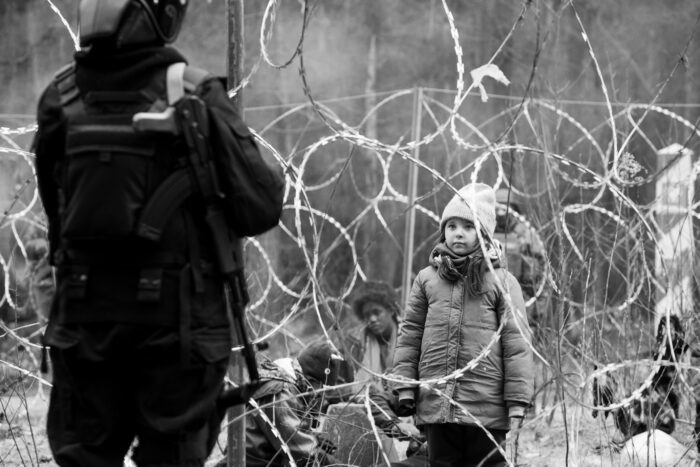Agnieszka Holland has been a key figure of European cinema for nearly 50 years, but now the director seems more current than ever. Green Border, which won the Special Jury Prize at the Venice Film Festival, depicts the refugee crisis of the Poland-Belarus border with a touchingly documentary-like approach.
The authorities at the “green border” see things in black-and-white as they round up refugees fleeing from Syria, Afghanistan, and Africa and haul them across the border like cattle, only for the other country to send them back again. With the blessings of their right-wing governments, the countries reduce people to human balls in their game of tennis, or worse yet – football. The commander of the Polish border patrol motivates the workers with inhumane propaganda, where people boil down to nothing but pawns in Lukashenko’s hybrid war. Even the animals of the forest watch from the sidelines, confused as to how human territorial disputes have gotten so out of hand.
There is not a shadow of a doubt about the humanity of Holland’s perspective. The central parties “family,” “the border patrol,” and “the activists” are all portrayed with nuance, but the crisis also reaches the locals. Among them is a psychologist who lost her husband to the COVID-19 pandemic. As people are dying in her backyard, she is forced to act.
The film exudes the worry and care of Holland and the crew. This may be the year’s most important film, highlighting points of concern, hypocrisy, and rhetoric spouted even by the Finnish ruling parties – but the film does not leave the viewer without hope.
Otto Kylmälä
